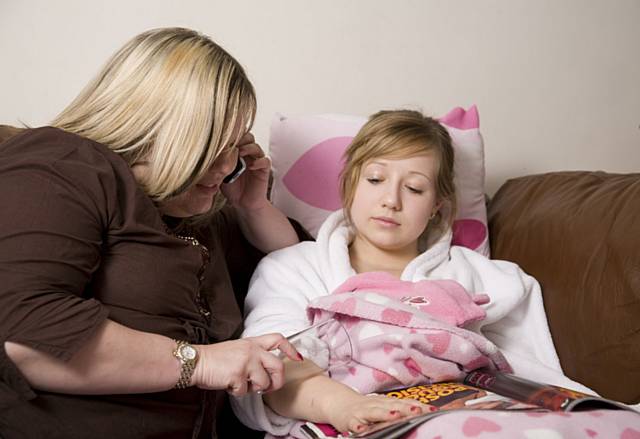Meningitis - know what to look out for
Date published: 16 November 2015

Meningitis Now is warning people to stay vigilant to the signs and symptoms of the disease
Winter is certainly here! The clocks are firmly set back, the evenings are darker, it’s cold, it’s wet and a night in snuggled-up on the sofa calls. This ‘invitation’ of extra indoor chill time can also bring an unwelcome guest... meningitis.
With cases of this killer disease peaking between October and March, charity Meningitis Now is warning people to stay vigilant to the signs and symptoms of the disease.
The population naturally goes into hibernation mode at this time of year, therefore spend more time indoors, getting ‘up close and personal’ with friends and family, meaning germs are spread more easily. As it’s also that time of year when everyone’s suffering with miserable colds and flu, our immune systems are usually lower, meaning knowledge of the symptoms and quick action is vital.
Meningitis is a serious disease, so we want you to know what to look out for. It can kill within hours so the quicker you act, the more likely you are to save yours, or someone else’s, life.
Each year there are 3,200 cases of bacterial meningitis in the UK – leaving 10 per cent of sufferers dead and a third of those who survive with after-effects such as brain damage, loss of hearing and sight and, where septicaemia has occurred, loss of limbs and scarring.
Meningitis is a difficult disease to spot as many of its early symptoms can be similar to flu.
These symptoms can include fever with cold hands and feet, vomiting, headache, stiff neck, dislike of bright light, joint or muscle pain, pale blotchy skin, drowsiness, confusion and, in babies, a dislike of being handled, an unusual cry, rapid breathing and bulging fontanelle.
Both adults and children may have a rash that does not fade under pressure, but advice from Meningitis Now is not to wait for a rash to develop before seeking medical attention.
Symptoms can appear in any order and some may not appear at all.
Without vaccines for all strains of meningitis, knowing the symptoms is the best form of defence. Download Meningitis Now’s free symptoms apps or request a credit-card sized symptoms card from its website at www.meningitisnow.org
Anyone affected by the disease or who has concerns can contact our free helpline on 0808 80 10 388 for information on our free support services.
Protect yourself this winter.
Do you have a story for us?
Let us know by emailing news@rochdaleonline.co.uk
All contact will be treated in confidence.
Most Viewed News Stories
- 1'Eyesore’ land in the town centre will become home to new apartment block
- 2Contractor appointed for regeneration scheme in Rochdale town centre
- 3Castleton station ‘to become epicentre of huge change and growth’
- 4Rochdale Exchange Market to reopen after a decade
- 5Decision delayed on 445-home estate in Castleton
To contact the Rochdale Online news desk, email news@rochdaleonline.co.uk or visit our news submission page.
To get the latest news on your desktop or mobile, follow Rochdale Online on Twitter and Facebook.

